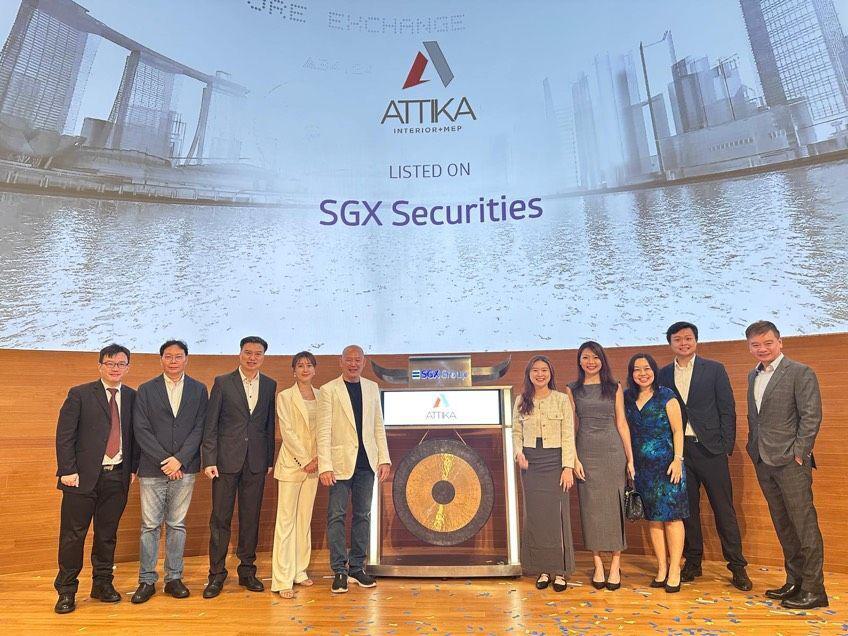
How tax professionals can play a role in a company’s sustainability journey
In this article, Sim Siew Moon, Senior Partner and Head of Tax and Nicodemus Tan, Governance, Risk & Sustainability Partner discuss how tax professionals play a vital role in corporate sustainability by navigating ESG tax policies, ensuring compliance, maximising incentives, and integrating sustainability into business models.
This article was first published in The Business Times on 17 February 2025.
How tax professionals can play a role in a company’s sustainability journey
The need to balance the current use of resources against a better or worse future has never been greater, and everyone must play their part in their respective roles. This is true even for tax professionals – a career that may not appear to be directly linked to sustainability at first glance.
These professionals can assess various schemes related to environmental, social and governance ("ESG") considerations.
Environmental
When one talks about tax and sustainability, the first thing that usually comes to mind is carbon tax. And indeed, this is a key tool used by many governments to curb the production of greenhouse gas emissions.
Singapore aims to achieve net-zero emissions by 2050. Its carbon tax framework was first introduced through the Carbon Pricing Act and its accompanying regulations on Jan 1, 2019, with amendments made and passed in Parliament on Nov 8, 2022.
The initial carbon tax rate was set at S$5 per tonne of carbon dioxide equivalent ("tCO2e"), from 2019 to 2023, for all industrial facilities with annual direct greenhouse gas emissions of at least 25,000 tCO2e. This was raised to S$25 per tCO2e for 2024 and 2025, and will be raised to S$45 per tCO2e for 2026 and 2027. By 2030, it will reach S$50 to S$80 per tCO2e.
The carbon tax will no doubt constitute a significant cost for large manufacturing facilities. Tax professionals can assist their organisations by evaluating schemes such as the Allowance Framework for emissions-intensive trade-exposed companies, as well as international carbon credits, to reduce their payable carbon tax.
They can also promote sustainability through the use of various government tax- and grant-related schemes and frameworks.
One example is the nationwide e-invoicing network InvoiceNow, rolled out by the Infocomm Media Development Authority in 2019. All new voluntary goods and services tax ("GST") registrants must be compliant with it by April 2026. For existing GST-registered companies, there is an option to be an early adopter from May 1 this year.
The use of a common e-invoicing platform allows companies to not only improve efficiencies and reduce human errors, but also diminish and possibly eliminate the need for paper invoices and the climate costs associated with their delivery (such as courier services, snail mail and fax).
Another useful scheme is the Refundable Investment Credit, which attracts a support level of up to 50 per cent on manpower, capital expenditure, and other associated costs for implementing solutions with decarbonisation objectives. The support comes in the form of tax credits which can be used to offset payable corporate income tax. These credits can also be paid in cash if they are not used within four years of the claim application’s approval.
There are other non-tax exclusive schemes being carried out in Singapore. The tax function is well-placed to work with the C-suite in identifying, evaluating and strategically implementing these measures.
They include cash grants such as the Resource Efficiency Grant for Emissions, which is for industrial facility projects that result in measurable and verifiable carbon abatement of at least 250 tCO2e per year, with a support level of up to 50 per cent of qualifying costs.
There is also the Sustainability Reporting Grant. It helps companies to defray costs incurred in drafting their first sustainability report on mandatory climate-related disclosures.
Significant assistance also comes in the form of green loans under the Enterprise Financing Scheme – Green. Rolled out as part of the Singapore Green Plan 2030, it provides loans of up to S$50 million to Singapore companies adopting green projects.
Social
Sustainability is not only about climate change. Running a sustainable business also means thinking about the social and governance impact.
The social dimension of ESG is wide and may include myriad considerations including diversity, income equality and supplier management.
Many charities need funding to continue their work, and companies can contribute towards their causes. The tax function can advise firms on including philanthropy in their tax strategies. In Singapore, cash donations made to an approved Institution of a Public Character for causes that benefit the local community can enjoy tax deductions of 2.5 times the qualifying donation amount.
Apart from cash donations to local causes, there are measures such as the Philanthropy Tax Incentive Scheme for Family Offices, with the tax deduction capped at 40 per cent of the approved qualifying donor’s statutory income. There is also the Overseas Humanitarian Assistance Tax Deduction Scheme, which allows tax deductions of 100 per cent of the donated sums.
Governance
The World Economic Forum in its June 2022 article Defining the “G” in ESG listed tax strategies such as tax compliance, anti-tax avoidance and tax disclosures in the basic list of factors that should be included within the governance aspect of ESG.
To ensure sound tax governance and compliance, tax professionals can assist companies in reviewing and strengthening their tax reporting structure, the relevant entity level controls, and the specific tax-related internal controls.
The Inland Revenue Authority of Singapore ("Iras") offers three programmes that grant tangible benefits for tax governance. The Tax Governance Framework as well as the Tax Governance and Tax Risk Management are voluntary compliance initiatives in which a company may participate to demonstrate that it has good tax governance and tax risk management.
The GST Assisted Compliance Assurance Programme allows businesses, on a voluntary basis, to conduct a holistic risk-based review to endorse the effectiveness of their GST controls. Once accredited in these programmes, the companies will be able to enjoy waivers of penalties and a step-down of compliance audits.
Even if firms do not take part in these programmes, the tax function can still assist them in enhancing their tax governance through other avenues, such as reaching out to Iras for an advanced ruling or advanced pricing arrangement for tax certainty.
These are just a few methods that tax professionals can use to contribute to a company’s sustainability journey, and make a real difference to our common future.
The writers are from Baker Tilly Consultancy (Singapore). Sim Siew Moon is senior partner and head of tax, while Nicodemus Tan is a governance, risk and sustainability partner. The views are their own and do not necessarily reflect the views of the global Baker Tilly organisation or its member firms.













